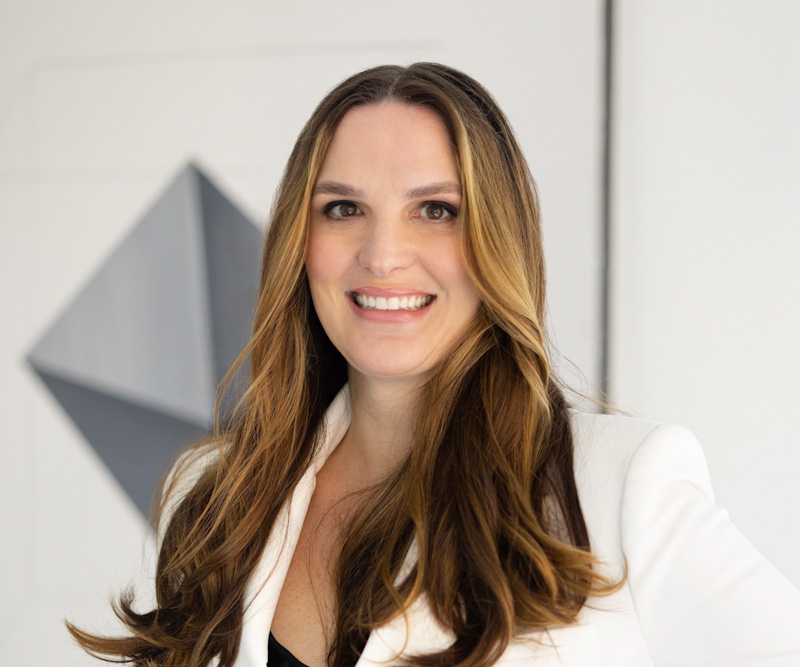Meet Susannah Baruch: Q&A with the Petrie-Flom Center’s New Executive Director
On June 20th, the Petrie-Flom Center welcomed Susannah Baruch on board as its new Executive Director.
Susannah comes to the Petrie-Flom Center with expertise in reproductive health law policy, genetics, and genomics, and a wealth of experience in nonprofits, academia, and government. We asked Susannah to share a bit about herself and her past work by way of introduction to Bill of Health’s readers.
The following interview has been edited and condensed.
You were involved in the enactment of the Genetic Information Nondiscrimination Act — can you share reflections from that experience?
I have always found genetic science fascinating — the idea that there’s something in our makeup that contributes to who we are, and influences how our lives will go. And as someone who was involved in civil rights law and employment discrimination issues, genetic discrimination — this idea that you could be fired or lose your job, not be hired for your job, not get promoted, because your employer was afraid that you were going to cost them too much money, because you had this predisposition to a genetic condition — that struck me as a really important example of potential bias in employer policies.
On the health insurance side, the Genetic Information Non-Discrimination Act really focused on the idea that you shouldn’t be unable to get health insurance because of your genetic makeup. Now, interestingly, it was passed before the Affordable Care Act, so we now have more protections for everyone, whether they are genetically predisposed to a condition or actually have that condition.
I take from the GINA experience that we always need to be mindful not just of legal and policy issues around scientific development, but also ethics. And, at Petrie-Flom, we’re taking that perspective: always keeping in mind the ethical quandaries when thinking about AI in health, and psychedelics, and other areas of huge potential and innovation; thinking about these issues from the beginning, and incorporating the perspectives of the people who are going to be most impacted.
With GINA for example, concerns from Huntington’s disease patient advocates helped push the issue into the spotlight. If they tested positive for the mutation that would cause Huntington’s, it was a virtual certainty that they would develop the disease, and so the issues were very stark. For the work that we’re doing at Petrie-Flom, making sure we get all the perspectives in the room and at the table is key.
You’ve written about preimplantation genetic diagnosis and ethical and legal debates over selecting genetic characteristics beyond those associated with life-threatening disease (i.e., “designer babies”). What do you see as the most pressing issues regarding preimplantation genetic diagnosis today?
There are many interesting issues on the horizon regarding preimplantation genetic testing and reproductive genetics generally. For me, this was another draw to the Petrie-Flom Center — I’ve followed Glenn’s prolific work on these topics with interest.
One question is whether, in the future, gene editing might be used in conjunction with preimplantation testing to correct genetic abnormalities — for example, you may have heard of some of the recent controversy around “CRISPR babies.”
Another is whether preimplantation genetic testing as part of in vitro fertilization will continue as usual in the wake of Dobbs. Bill of Health recently hosted a symposium on Assisted Reproduction in a Post-Dobbs U.S., which looked at this issue — how the decision in Dobbs might provide a basis for legislators to restrict access to in-vitro fertilization and other assisted reproductive technologies in the U.S. It is an open question whether this care will remain available in all states.
After Dobbs, you warned about crisis pregnancy centers and their potential to mislead individuals seeking abortion care. Can you describe what you’ve seen in this realm in the intervening year?
For crisis pregnancy centers — which some people call fake abortion clinics, or anti-abortion clinics, or anti-abortion centers — the original concern around their existence was that they were tricking people who were seeking abortion to come in and get misinformation that might dissuade them from getting an abortion.
Since Dobbs, they are also taking on this new mantle of, we will provide prenatal care. And they’re not set up to do it. They don’t have the skill, they’re not licensed, they don’t have the staff. And in areas, particularly rural areas that are considered maternal care deserts, where there aren’t a lot of good alternatives, they’re really reaching out locally to find people who are looking for that care. And they seem to be targeting Black and Brown populations in particular. This is particularly concerning at a time when we know that maternal mortality rates, especially among Black women are high, and not being systemically addressed.
You had a stint at the U.S. Department of Justice Office of Special Investigations. For those not familiar, can you tell us what that is? Can you share any memorable anecdotes? What did you take away from that experience?
This office focused on people living in the United States who had lied about their activities during World War II in Europe; who had served the Nazi regime and then pretended not to have done that — lied on their immigration forms — in order to be able to come to the United States after the war.
The work that we did was historical and document-based, with a team of highly specialized lawyers who uncovered the lies that people told about their activities during the war as the basis of revoking their immigration status and, in some cases, deported them.
I was there after my 1L summer. There was immigration law and what we called “adventures in civil procedure,” because there was complicated court-based work, using forensic investigation and data from long ago and historical documents.
What do you consider your greatest achievement?
My own equanimity. Both my parents died quite young and my early 20s felt very hard. It’s my ongoing work to have balance and maintain perspective and not worry too much about daily ups and downs.
Which historical figure do you most identify with?
That’s a tough one — maybe Eleanor Roosevelt. Literally I grew up looking at busts of Franklin and Eleanor Roosevelt in our house.
What is your motto?
It’s attributed to everyone from Socrates to Maya Angelou — be kind, everyone is fighting a battle you know nothing about.
What are you reading?
It’s pretty eclectic. For obvious work reasons — and also because it is a great read — I’m in the middle of How to Change Your Mind: What the New Science of Psychedelics Teaches Us About Consciousness, Dying, Addiction, Depression, and Transcendence. I’m waiting for the next in the long series of Jacqueline Winspear’s Maisie Dobbs mysteries. She’s an investigator and psychologist in London around WWII, and I identify with her approach to untangling mysteries: prioritize relationships, consider all context, and use a bunch of index cards. I’m also obsessed with Priya Parker’s The Art of Gathering.
Which talent would you most like to have?
Singing. It’s like magic to me.






